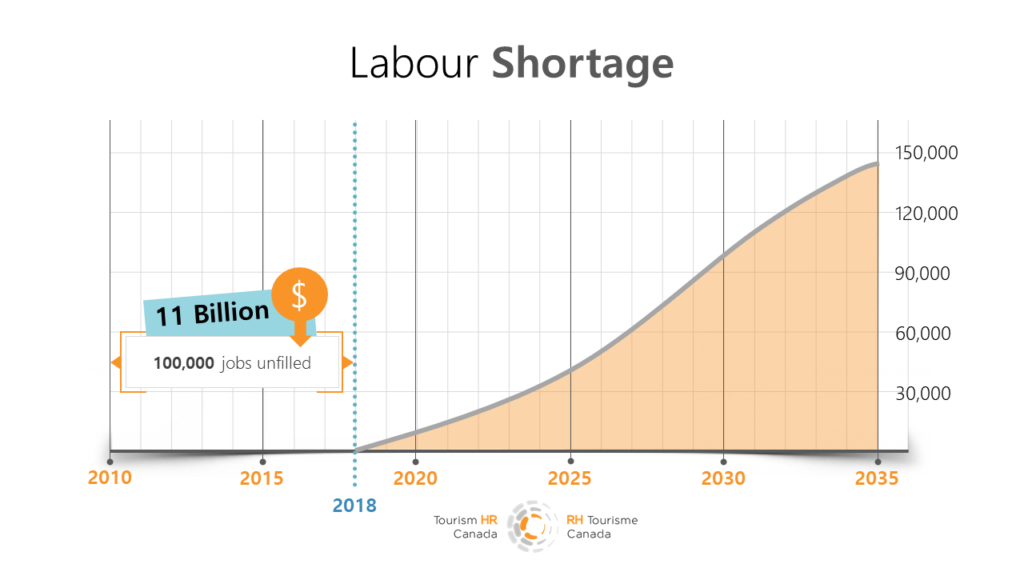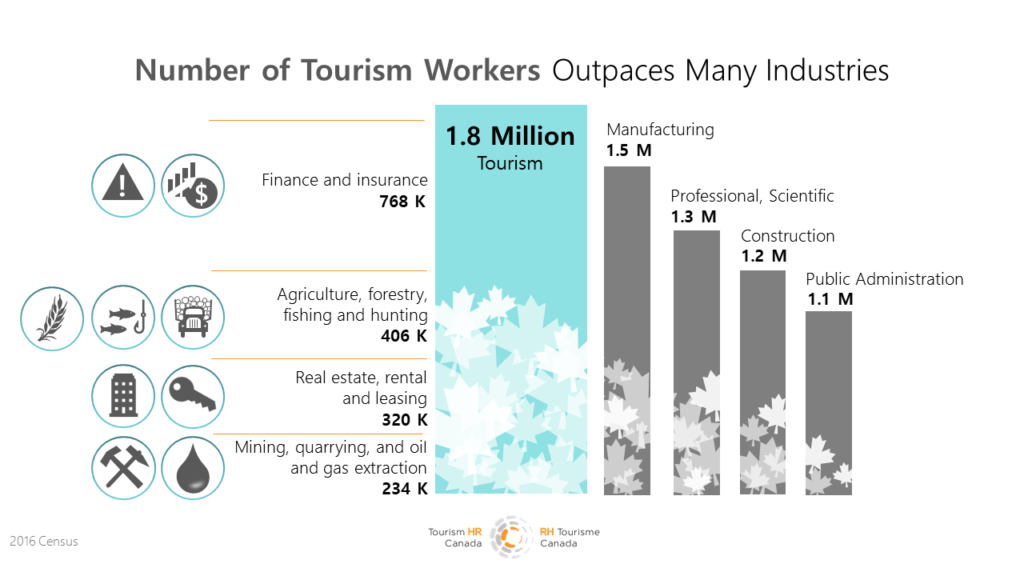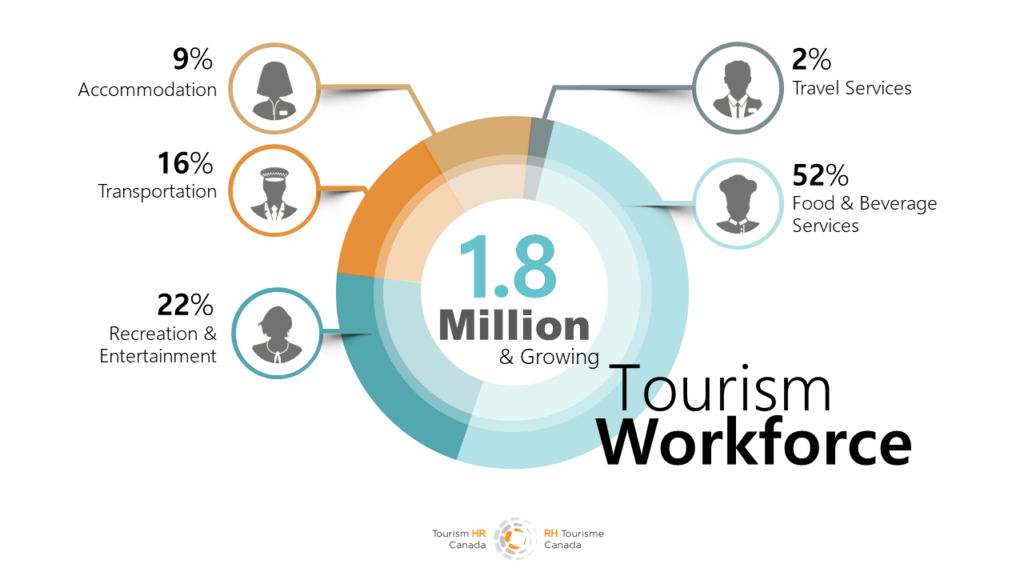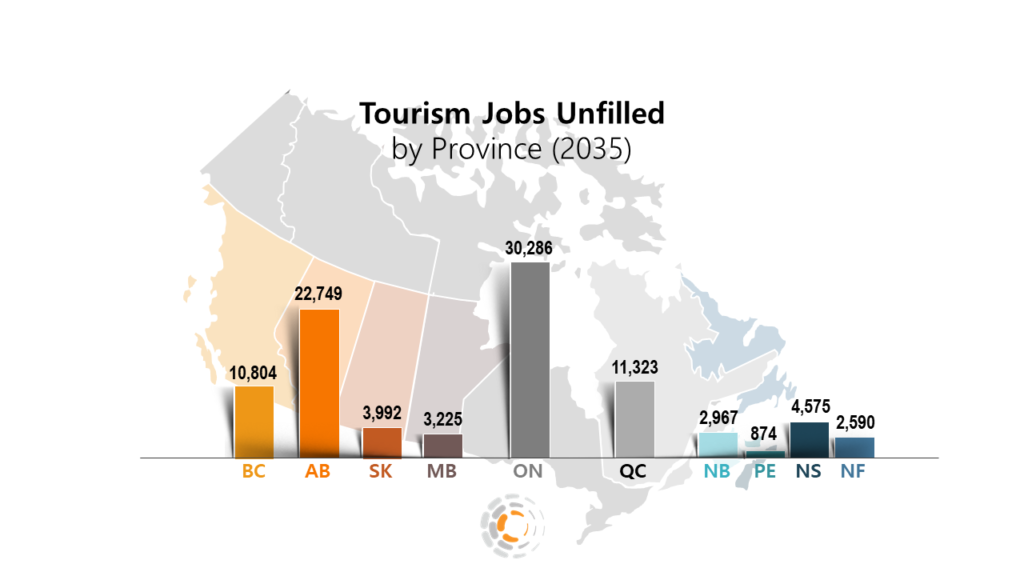By Joe Baker
Originally published by Canadian Lodging News
The shortage of talent facing the Canadian hospitality and tourism industry has reached crisis levels in some parts of the country. Operators may be experiencing this at a local level but the issue is much more than a localized trend. It has become one of the most significant obstacles this industry has ever faced. And it’s not going away any time soon. The confluence of pressure points is creating the perfect storm. The good news is that industry, education and government are doing a better job of working together to address this issue and protect an industry that is vital both to the Canadian economy and to the Canadian culture itself.
Let’s explore some of the factors at play. In terms of employment, tourism is one of the largest sectors in Canada, employing over 1.8 million Canadians. More people work in tourism than in industries such as manufacturing, construction and public administration. The sheer size of this workforce is what makes these labour shortages so challenging for industry operators.

According to Tourism HR Canada, in 2015 the Job Vacancy and Wage Survey showed 22,320 vacant full-year tourism jobs. By the end of 2020, the job shortfall in the sector is expected to reach over 51,000. Between 2010 and 2018, as many as 100,000 jobs have gone unfilled in the Canadian tourism industry and that number continues to grow. Although vacancies were advertised, employers were unable to fill these positions. Lack of skilled workers also prevented business expansions among tourism organizations to the tune of $10.1 billion of unrealized revenue across the country by 2035.

One of the influencing factors is the competitive nature of the world of work. Well-trained hospitality workers are assets to many other industries. Many of these organizations are taking notice of our talented labour pool. From financial services to long-term care organizations, Canadian tourism talent has much to offer competing industries. Whether its advanced customer service skills or business acumen, experienced tourism workers are finding great success in their second careers making it that much more important for tourism employers to map out career paths for their current workforce.
In a 2016 survey of 2,000 Canadians, Tourism HR Canada found that only 23 per cent of Canadians, both working in the industry and those not in the industry, believed wages were competitive with only 31 per cent believing benefits were competitive. These are systemic issues that only employers can address. While understandably complex and challenging, without addressing wage and benefit gaps, less-and-less Canadians see tourism as a viable career path. Or worse, they enter the industry only to leave a few short years later. This is not sustainable.
Staff turnover directly impacts the quality of customer service, increases staff burnout and leads to loss of revenue. Businesses face increased costs, missed business opportunities and reduced hours of operation. Under-qualified and under-experienced staff provide inferior customer service and reduced quality standards. This also created a host of other HR challenges. In many cases, with the absence of available workers, managers end up doing double duty to keep operations afloat.
If nothing is done to increase the supply of labour, the shortfall in revenues for the tourism sector (based on 2015 projections) is estimated at $10.1 billion by 2035. This is close to 3.2 per cent of all potential earned revenue.

Canada’s increased immigration targets provide an opportunity to fill the tourism’s labour needs. Recent changes to immigration policy will fill tourism jobs that would otherwise have gone unfilled. Since 2017, the federal intake of immigrants to Canada has been increasing. It will reach 350,000 individuals by 2021. While the tourism sector is still faced with finding people to fill 93,000 tourism jobs, higher immigration means the shortage outlook is much less acute previously. From 2017 to 2035, this policy change is expected to fill 44,000 tourism jobs that would have otherwise gone unfilled.”
Canada ranks as the world’s 4th most popular destination for international students. In 2017, there were 494,525 international students in Canada. That represents a 119 per cent increase since 2010, and an increase of 20 per cent over the previous year. International students made up 12 per cent of the postsecondary student population in Canada in the 2015-2016 academic year. Of the 494,525 international students in Canada, 48 per cent are in Ontario, 24 per cent are in British Columbia and 12 per cent are in Quebec.

More international students are choosing Canada and transitioning to permanent residents. New figures show significant increase in the number of international students enrolling in Canadian colleges and universities with more than half reporting their intention to stay in Canada after graduation. This is a huge opportunity for education to work closely with industry as these students become graduates and a new Canadian talent pool. This is only expected to grow over the next several years.
As educators, we need to continue to work with industry to identify the skills required for the future of work in the tourism sector. As operators, we need to be open to exploring change in both workplace culture and wages as we lift the image of our industry to attract young Canadians and under-represented groups to these positions. And at the same time, we need to welcome our new Canadian workforce with the same enthusiasm we show our international visitors. We are tourism after all. Accommodating the needs of our workforce is not unlike accommodating the needs of our clients and guests. We will face and overcome these issues together. Industry x education.
Joe Baker is Dean, School of Hospitality, Tourism and Culinary Arts, Centennial College, and a Director on the Tourism HR Canada Board.
Republished with permission of Canadian Lodging News. Click here to see the original article.

